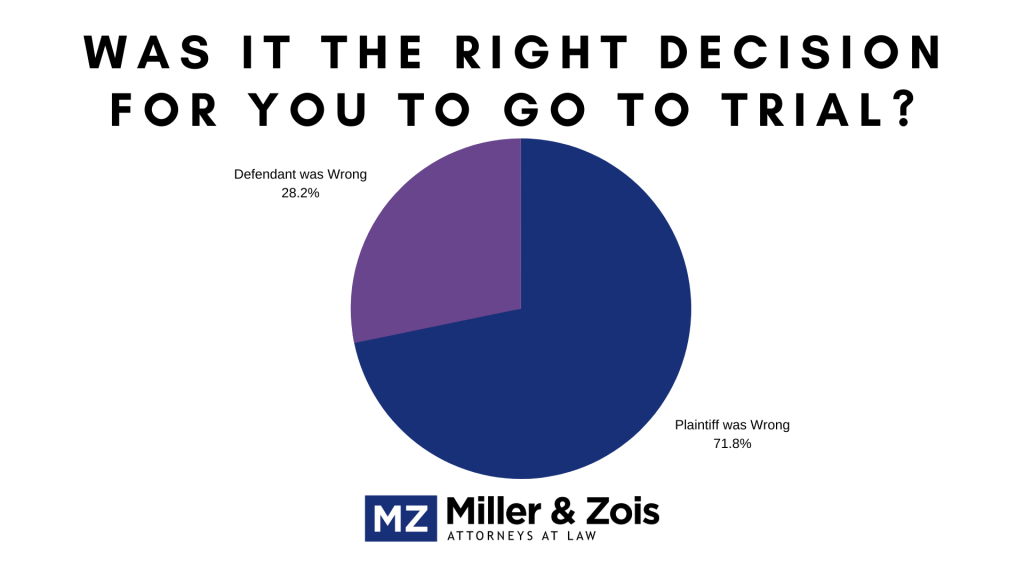There is an article in the New York Times today that concludes that it is best to settle most accident, malpractice, and breach of contract claims based on a recent study.
The basis for the conclusion is a study suggesting that defendants made the wrong decision by proceeding to trial, based on the offer and the outcome, in 24 percent of cases, and plaintiffs were wrong in 61 percent of cases.
Setting aside that these numbers do not even resemble the numbers of our lawyers – and probably 90% of the personal injury lawyers reading this – these numbers are hardly persuasive in reaching that conclusion. The reason is simple: if you bet on a horse that is a 50-1 shot and the horse has a 10% chance of winning the race; you will lose more often than you win but you are still better off making the bet (i.e., trying the case) than you are not making the bet (i.e. setting the case).
In fact, the article presents powerful evidence of this. When plaintiffs err in going to trial, the study states that they lose $41,000 on average. When the defendants make the wrong call, the error costs them over $1 million. The plaintiff—like the man betting on the horses—may get the decision wrong more often than the defendants from a win-loss perspective, but might still be better served statistically by going to trial.
The irony of the article is the suggestion that personal injury lawyers are pushing cases to trial. The failing of most personal injury lawyers is that they push their clients to settle too soon and too often because the lawyer would rather not have to try the case; perhaps this is because they do not want to spend the time or effort or do not have the ability and experience to try the case.
Thankfully, most personal injury cases can settle. It is important to remember—as the article points out—that for most Plaintiffs a $500,000 settlement is a better choice than a 75% chance of getting $1,000,000 at trial, regardless of the math, because the settlement acts as an insurance policy. But the notion that personal injury lawyers should try fewer cases is just false and plays into the hands of insurance companies that are seeking every avenue to convince injury and malpractice lawyers to recommend to their clients values that do not approximate a fair settlement for the case.
 Maryland Injury Law Center
Maryland Injury Law Center


